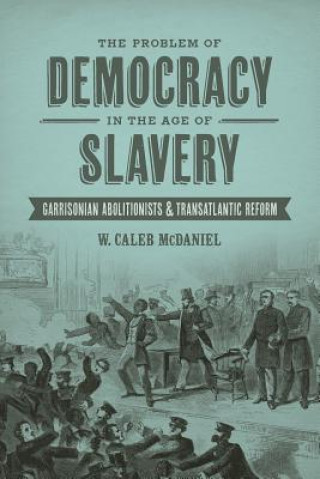
Code: 11528478
Problem of Democracy in the Age of Slavery
by W Caleb McDaniel
Winner of the Merle Curti Award Winner of the Shear James Broussard First Book Prize In The Problem of Democracy in the Age of Slavery, W. Caleb McDaniel sets forth a new interpretation of ... more
- Language:
 English
English - Binding: Paperback
- Number of pages: 360
Publisher: Louisiana State University Press, 2015
- More about this

You might also like
Give this book as a present today
- Order book and choose Gift Order.
- We will send you book gift voucher at once. You can give it out to anyone.
- Book will be send to donee, nothing more to care about.
More about Problem of Democracy in the Age of Slavery
You get 110 loyalty points
 Book synopsis
Book synopsis
Winner of the Merle Curti Award Winner of the Shear James Broussard First Book Prize In The Problem of Democracy in the Age of Slavery, W. Caleb McDaniel sets forth a new interpretation of the Garrisonian abolitionists, stressing their deep ties to reformers and liberal thinkers in Great Britain and Europe. The group of American reformers known as "Garrisonians" included, at various times, some of the most significant and familiar figures in the history of the antebellum struggle over slavery: Wendell Phillips, Frederick Douglass, and William Lloyd Garrison himself. Between 1830 and 1870, American abolitionists led by Garrison developed extensive networks of friendship, correspondence, and intellectual exchange with a wide range of European reformers-Chartists, free trade advocates, Irish nationalists, and European revolutionaries. Garrison signaled the importance of these ties to his movement with the well-known cosmopolitan motto he printed on every issue of his famous newspaper, The Liberator: "Our Country is the World-Our Countrymen are All Mankind." That motto serves as an impetus for McDaniel's study, which shows that Garrison and his movement must be placed squarely within the context of transatlantic mid-nineteenth-century reform. Through exposure to contemporary European thinkers-such as Alexis de Tocqueville, Giuseppe Mazzini, and John Stuart Mill-Garrisonian abolitionists came to understand their own movement not only as an effort to mold public opinion about slavery but also as a measure to defend democracy in an Atlantic World still dominated by aristocracy and monarchy. While convinced that democracy offered the best form of government, Garrisonians recognized that the persistence of slavery in the United States revealed problems with the political system. They identified the participation of minority agitators as part of the process in a healthy democratic society. Ultimately, Garrisonians' transatlantic activities reveal their deep patriotism, their interest in using public opinion to affect American politics, and their similarities to other antislavery groups. By following Garrisonian abolitionists across the Atlantic Ocean and exhaustively documenting their international networks, McDaniel challenges many of the timeworn stereotypes that still cling to their movement. He argues for a new image of Garrison's band as politically savvy, intellectually sophisticated liberal reformers, who were well informed about transatlantic debates regarding the problem of democracy.
 Book details
Book details
Book category Books in English Humanities History Regional & national history
43.62 €
- Full title: Problem of Democracy in the Age of Slavery
- Subtitle: Garrisonian Abolitionists and Transatlantic Reform
- Author: W Caleb McDaniel
- Language:
 English
English - Binding: Paperback
- Number of pages: 360
- EAN: 9780807162309
- ISBN: 0807162302
- ID: 11528478
- Publisher: Louisiana State University Press
- Weight: 531 g
- Dimensions: 229 × 152 × 21 mm
- Date of publishing: 27. July 2015
Trending among others
-

Strange Death of Europe
15.20 € -22 % -
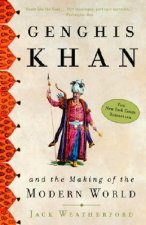
Genghis Khan
19.54 € -7 % -

Secret History
11.27 € -28 % -

History of the Ancient Near East ca. 3000 - 323 BC 3e
55.51 € -

Penguin Historical Atlas of Ancient Egypt
18.23 € -20 % -

God's Playground A History of Poland
67.30 € -
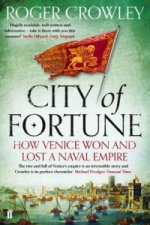
City of Fortune
14.30 € -22 % -

The Great Depression: A Diary
17.92 € -14 % -

Gulag
15.30 € -27 % -
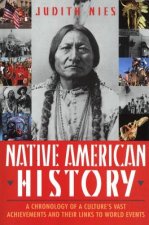
Native American History
20.75 € -13 % -

Pocket History of Ireland
7.45 € -26 % -

Hangman's Diary
12.08 € -25 % -

Badges and Uniforms of the Royal Air Force
17.32 € -18 % -

Shah of Shahs
10.27 € -28 % -

To Hell and Back
16.61 € -22 % -

Complete Pompeii
30.82 € -23 % -

Olympic, Titanic, Britannic
28.10 € -19 % -

With the Old Breed
15.71 € -25 % -

Constantinople
15.10 € -18 % -

Welsh Castles
33.64 € -19 % -

Penguin Historical Atlas of Ancient Greece
20.14 € -28 % -

World of Saint Patrick
33.04 € -7 % -

Venetians in Constantinople
36.36 € -

Few
10.57 € -18 % -

Ninja, The Secret History of Ninjutsu
15.10 € -16 % -

Penguin Historical Atlas of Ancient Rome
17.32 € -18 % -

Annals & The Histories
17.72 € -19 % -

Century of Palestinian Rejectionism and Jew Hatred
9.36 € -16 % -

British Isles
21.35 € -17 % -

Russia and the Russians
19.44 € -27 % -

English Castles
29.21 € -19 % -

Civilization of Europe in the Renaissance
17.32 € -13 % -

US HISTORY
11.88 € -1 % -

Earth is Weeping
15.20 € -28 % -

French Army 1870-71 Franco-Prussian War (2)
16.61 € -10 % -

Russia Under the Old Regime
13.29 € -28 % -

Decline and Fall of the Roman Empire: Vols 1-3
60.14 € -28 % -
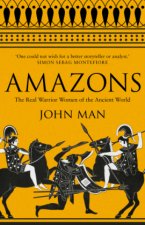
Amazons
12.79 € -18 % -

Midnight at the Pera Palace
16.61 € -17 % -

1812
20.14 € -28 % -

Empire of the Steppes
65.18 € -

German Order of Battle
22.56 € -

The Fourth Turning
20.65 € -6 % -

Ethnic Cleansing of Palestine
12.89 € -25 % -

Beyond Band of Brothers
15.20 € -28 % -

Bushido, the Soul of Japan
14 € -

Ten Myths About Israel
13.49 € -35 % -

How to be a Victorian
13.29 € -28 % -

Easy Company Soldier
15.61 € -25 %
Collection points Bratislava a 2642 dalších
Copyright ©2008-24 najlacnejsie-knihy.sk All rights reservedPrivacyCookies






 15549 collection points
15549 collection points Delivery 2.99 €
Delivery 2.99 € 02/210 210 99 (8-15.30h)
02/210 210 99 (8-15.30h)